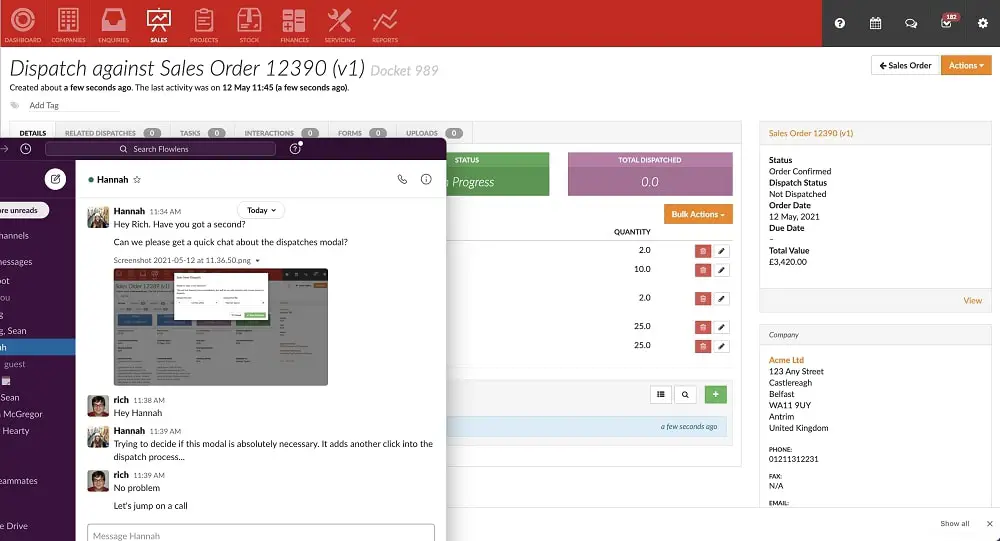Salary, Job Description, How To Become One, and Quiz
.jpg)
SQA Engineers
SQA Engineers develop and execute software test plans in order to identify software problems and their causes.
Table of contents
What they do
SQA Engineers develop and execute software test plans in order to identify software problems and their causes.
- Design test plans, scenarios, scripts, or procedures.
- Document software defects, using a bug tracking system, and report defects to software developers.
- Identify, analyze, and document problems with program function, output, online screen, or content.
- Develop testing programs that address areas such as database impacts, software scenarios, regression testing, negative testing, error or bug retests, or usability.
Typical day
On a daily basis, SQA Engineers provide feedback and recommendations to developers on software usability and functionality. They develop testing programs that address areas such as database impacts, software scenarios, regression testing, negative testing, error or bug retests, or usability.
A typical day for a Software Quality Assurance Engineer and Tester will also include:
- Monitor bug resolution efforts and track successes.
- Create or maintain databases of known test defects.
- Document software defects, using a bug tracking system, and report defects to software developers.
- Monitor program performance to ensure efficient and problem-free operations.
- Identify, analyze, and document problems with program function, output, online screen, or content.
Other responsibilities
Besides their typical day, SQA Engineers also plan test schedules or strategies in accordance with project scope or delivery dates. They may also participate in product design reviews to provide input on functional requirements, product designs, schedules, or potential problems.
On a weekly to monthly basis, SQA Engineers conduct historical analyses of test results. They might also review software documentation to ensure technical accuracy, compliance, or completeness, or to mitigate risks.
In addition, they develop or specify standards, methods, or procedures to determine product quality or release readiness.
Although specific duties may vary, many of them collaborate with field staff or customers to evaluate or diagnose problems and recommend possible solutions.
To some SQA Engineers, it is also their responsibility to design or develop automated testing tools.
What is the job like
Job satisfaction
Is this job meaningful
70% said they were satisfied with their job and 46% said they found their job meaningful.

I work as a QA Software Engineer but I also cover some of the support that comes in so it’s important that I ensure that all our customers are happy.
My day starts off by checking my emails to ensure that there are no important emails to address. I then go to look at the tasks that have been marked by development as ready to test. I plan out how I will test the tasks, implement those tests, then once they meet the quality of our system, mark them as ready to go.
Every week we do a new software release which involves me doing regression testing on the system to ensure that the new things that were introduced, haven’t broken any other part of the system. I occasionally have meetings to discuss new features/current issues, and everyday I am part of a meeting where we figure out problems together.
Pros
- There really is no better feeling than when you work out how to replicate a very complicated bug that only crops up in really unlikely circumstances!
- When we do a release and it all goes smoothly, I get a massive sense of pride in my work because I know that our software is working well because of my contribution.
- Our software is constantly being developed and maintained so it means that every day I am working on something different – no two days are ever the same.
- Being part of a really friendly team means that I get to learn knowledge from other people, in regards to both technical skills and customer-based knowledge.
Cons
- It can sometimes be hard to switch off after work when you know there are tasks that still need to be addressed. I have found that the best way to deal with this is to prioritize my work and accept that there are some tasks that are ok to be left until the next day.
- It can be frustrating when a bug manages to make it through to the live system as you feel like you’re personally responsible. This, however, drives me to ensure that my tests have even better coverage and prompts me to look into new, and better ways of testing.
Pros
Suitable for people who like to solve problems mentally.
Suitable for people who value achievements and are results-oriented.
This career is perfect for people who love to work indoors.
Very high salary (top 25% highest paid careers).
Normal working hours (40 hours per week).
Cons
Not suitable for people who like to help and teach others.
It is hard to get into this career. A considerable amount of work-related skill, knowledge, or experience is required for this career.
How much do they make
Average salary
Average hourly wage
Entry-level SQA Engineers with little to no experience can expect to make anywhere between $65,210 to $84,020 per year or $31 to $40 per hour.
| Salary by experience | Annual | Hourly |
|---|---|---|
| Highest (Top 10%) | $170,100 | $82 |
| Senior (Top 25%) | $140,470 | $68 |
| Median | $110,140 | $53 |
| Junior (Bottom 25%) | $84,020 | $40 |
| No experience (Bottom 10%) | $65,210 | $31 |
This table shows the top 10 highest paying industries for SQA Engineers based on their average annual salary.
| Salary by industry | Annual | Hourly |
|---|---|---|
| Inland Water Transportation | $243130 | $116.89 |
| Independent Artists, Writers, and Performers | $187070 | $89.94 |
| Sporting Goods, Hobby, and Musical Instrument Stores | $146630 | $70.49 |
| Computer and Peripheral Equipment Manufacturing | $145800 | $70.10 |
| Electronics and Appliance Stores | $137170 | $65.95 |
| Electronic Shopping and Mail-Order Houses | $135870 | $65.32 |
| Remediation and Other Waste Management Services | $129590 | $62.30 |
| Cable and Other Subscription Programming | $128900 | $61.97 |
| Securities, Commodity Contracts, and Other Financial Investments and Related Activities | $128840 | $61.94 |
| Scientific Research and Development Services | $127780 | $61.43 |
View more salary by industries here.
Where can they work
Where can SQA Engineers work? Here is a table showing the top 10 largest employers of SQA Engineers including the average salary in that industry.
| Employers | Total Employed | Annual Salary | Hourly Wages |
|---|---|---|---|
| Computer Systems Design and Related Services | 480840 | $111770 | $53.73 |
| Software Publishers | 139820 | $122630 | $58.96 |
| Management of Companies and Enterprises | 76470 | $110790 | $53.26 |
| Data Processing, Hosting, and Related Services | 53000 | $112090 | $53.89 |
| Management, Scientific, and Technical Consulting Services | 44650 | $109600 | $52.69 |
| Insurance Carriers | 42200 | $103890 | $49.95 |
| Credit Intermediation and Related Activities | 38580 | $119260 | $57.34 |
| Other Information Services | 38350 | $126270 | $60.70 |
| Architectural, Engineering, and Related Services | 38170 | $113540 | $54.59 |
| Employment Services | 36180 | $113780 | $54.70 |
What is the work day like
Working hours
Working schedule
How often do you use email in this job?
Telephone
How often do you have telephone conversations in this job?
Group discussions
How often do you have group discussions in this job?
Public speaking
How often does this job require you to do public speaking?
Level of competition
How much competitive pressure is in this job?
What is the work environment like
Office-style environment
Indoors in an environmentally controlled condition
Warehouse-style environment
Indoors in a non-controlled environmental condition such as a warehouse
Outdoors
Outdoors exposed to all weather conditions
Outdoors – Under Cover
Outdoors but under cover (e.g. structure with roof but no walls)
How to become one
Difficulty to become one
Required level of education
What level of education do you need to perform the job?
Relevant majors
Computer Software Technology
Computer Systems Technology
Computer Engineering Technology
Computer Software Engineering
Computer Engineering
Computer Science
Computer Systems Analysis/Analyst
Computer Programming, Specific Platforms
Computer Game Programming
Computer Programming, Vendor/Product Certification
Computer Programming, Specific Applications
Computer Programming
Informatics
Information Technology
Computer and Information Sciences
Relevant work experience
How much related work experience do you need to get hired for the job?
On The Job Training
How much on the job training do you need to perform the job?
Should you become one
Best personality type for this career
People with this personality likes to work with ideas that require an extensive amount of thinking. They prefer work that requires them to solve problems mentally.
People with The Builder personality type likes practical and hands-on work. They prefer working with plants, animals, and real-world materials like wood, tools, and machinery.
People with The Thinker personality likes to work with ideas that require an extensive amount of thinking. They prefer work that requires them to solve problems mentally.
People with The Artist personality likes to work with designs and patterns. They prefer activities that require self-expression and prefer work that can be done without following a clear set of rules.
People with The Helper personality type likes to work with people and in teams. They prefer work that allows them to build relationships with others.
People with The Leader personality likes to start and work on projects. They also like leading people and making many decisions.
People with The Organizer personality type likes to follow set procedures and routines. They prefer working with data and details more than with ideas.
You can read more about these career personality types here.
People who are suitable for this job tend to like working with ideas and require an extensive amount of thinking. They like searching for facts and figuring out problems mentally.
They also like following set procedures and routines. They like working with data and details more than with ideas.
Take this quiz to see if this is the right career for you.
Work Values
Which values are the most important to a person’s satisfaction for this job?
You are someone who is results oriented. You prefer work that allows you to utilize your skills and abilities while at the same time giving you a sense of accomplishment.
You are someone who values job security, steady employment, and good working conditions. You also prefer work that keeps you busy all the time with something different to do every day.
You are someone who values job advancement and leadership roles. You prefer work that receives recognition for the work you do and jobs that are looked up to by others in the company and your community.
You are someone who likes to provide a service to others. You prefer a work environment where you can work with your co-workers in a friendly non-competitive environment.
You are someone who values a company that stands behind their employees. You prefer a work environment where everyone is treated fairly and is being supported by the company.
You are someone who likes to work on your own and make your own decisions. You prefer work that requires little supervision and are allowed to try out your own ideas.
Don’t know which career to pursue?
Take the career quiz to find careers that match your personality type.
Take The Career Quiz


.jpg)




.jpg)
.jpg)
.jpg)
.jpg)
.jpg)
.jpg)
.jpg)
.jpg)
